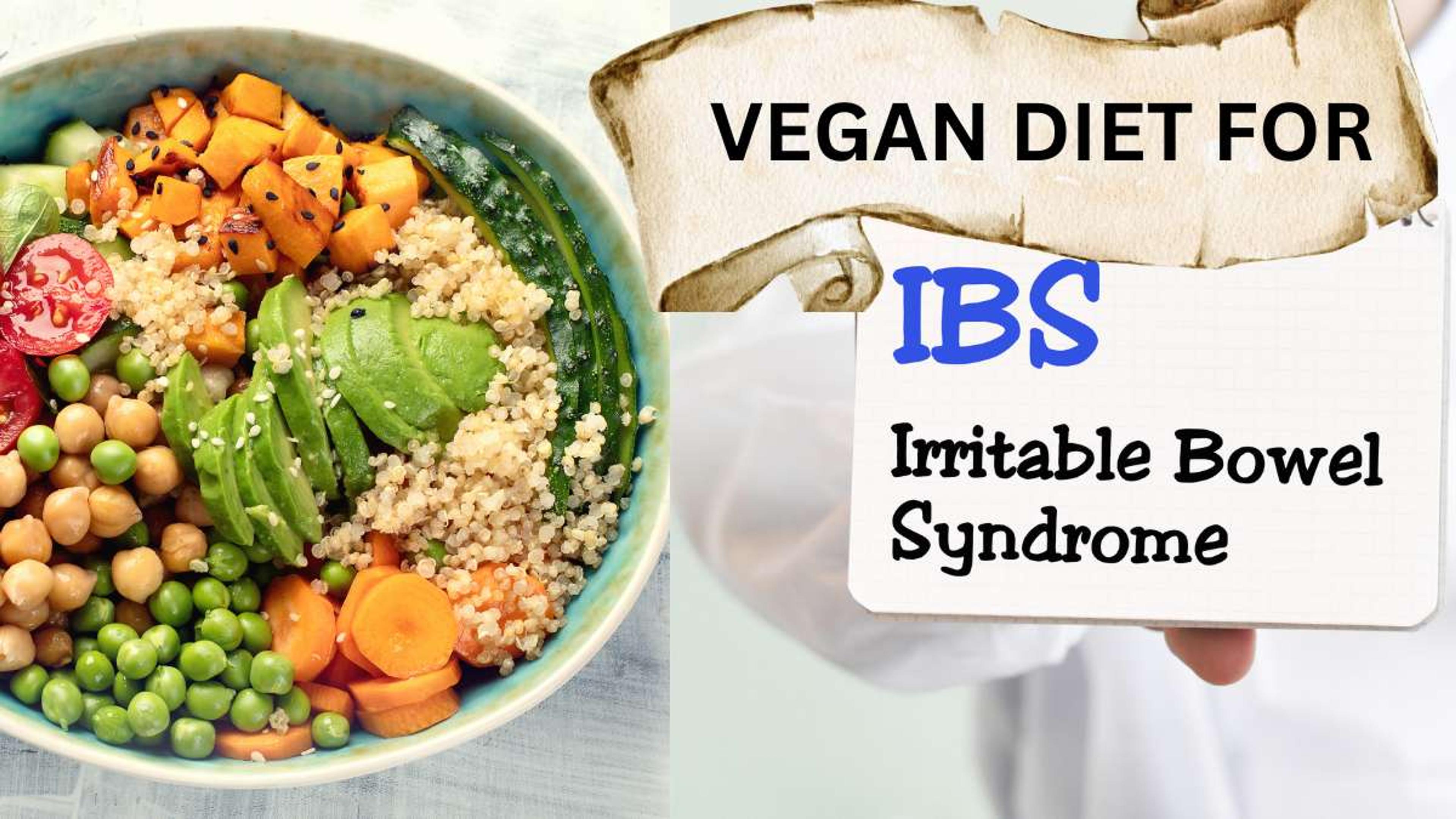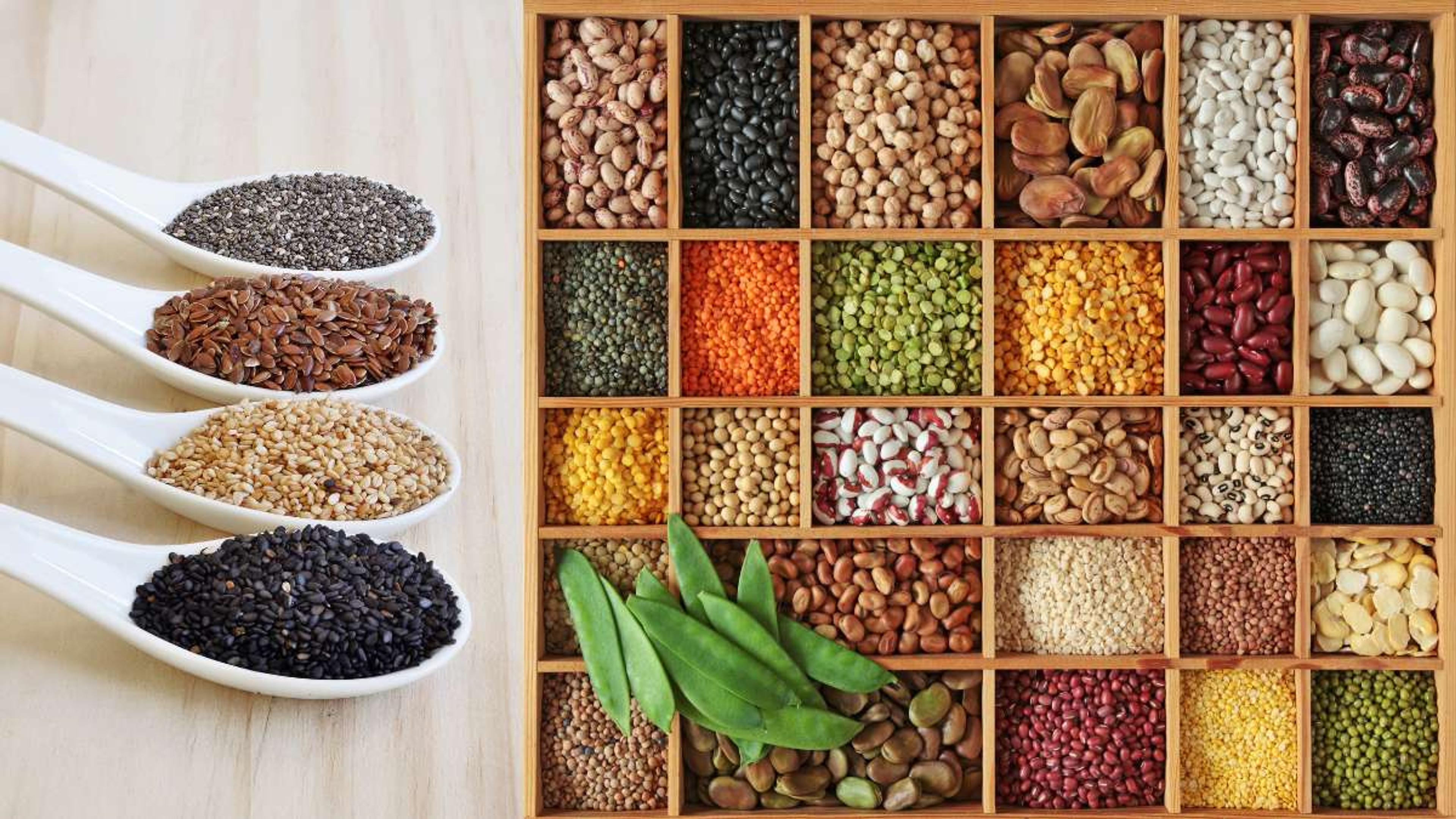Vegan Diet for IBS: The Key to Happy Gut and Healthier Life

- Key Takeaways
- What is an IBS Vegan Diet?
- Following a Low FODMAP Vegan Diet
- Tips for Successfully Following an IBS Vegan Diet
- Conclusion
- FAQs
Are you a vegan struggling with Irritable Bowel Syndrome (IBS)? It can seem daunting to manage IBS symptoms while maintaining a plant-based diet, given that many high-FODMAP foods are common in vegan meals. FODMAP food refers to certain types of carbohydrates that can trigger IBS symptoms such as bloating, gas, and abdominal pain. However, with the right knowledge and meal planning, it is possible to follow a vegan diet while minimizing your intake of high-FODMAP foods.
This article will provide practical guidelines on how to balance your nutritional needs and navigate the challenge of following a low FODMAP vegan diet effectively. Eager to improve your gut health? Let's dig deeper!
Key Takeaways
- A vegan diet can be beneficial for managing symptoms of Irritable Bowel Syndrome (IBS) by improving gut health and eliminating potential trigger foods.
- Following a low FODMAP vegan diet involves managing high-FODMAP foods, gradually introducing new foods, and focusing on fiber-rich plant foods.
- Meeting nutrient needs on an IBS vegan diet can be achieved by incorporating various plant - based options, considering supplements like vitamin B12, and working with a registered dietitian.
What is an IBS Vegan Diet?
An IBS vegan diet is a plant-based eating plan that eliminates animal products and focuses on consuming foods that are low in FODMAPs, which are fermentable carbohydrates known to trigger IBS symptoms. FODMAP stands for fermentable oligosaccharides, disaccharides, monosaccharides, and polyols. These carbohydrates are found in many common vegan foods such as beans, lentils, wheat, onions, and garlic.
By following an IBS vegan diet, you can reduce the likelihood of experiencing uncomfortable symptoms like bloating, gas, and abdominal pain. It allows you to enjoy the benefits of a plant-based lifestyle while managing your IBS effectively.
One important step in managing IBS on a vegan diet is to familiarize yourself with low-FODMAP plant-based foods. These include fruits like bananas, berries, and oranges, as well as vegetables such as carrots, spinach, and zucchini. Incorporating these foods into your meals can help ensure you are getting the necessary nutrients while avoiding triggers
Benefits of a Vegan Diet for IBS
A vegan diet can be beneficial for those suffering from Irritable Bowel Syndrome (IBS). An increase in plant-based foods not only improves gut health but also boosts the diversity of good bacteria in the digestive system.
This, in turn, can help to relieve uncomfortable symptoms associated with IBS such as bloating and constipation. Also worth considering is that certain animal-derived products have been known to aggravate IBS symptoms in some individuals; by adopting a vegan diet, potential triggers are automatically eliminated.
However, it's important to note that while overall plant consumption is increased on a vegan diet, care should still be taken to avoid high-FODMAP foods which are known trigger points for people battling IBS.
Managing high-FODMAP foods
Navigating the world of high-FODMAP foods requires care and precision. Certain plant-based foods like broccoli, chickpeas, lentils and almonds are rich in FODMAPs that trigger IBS symptoms such as bloating, abdominal pain, diarrhea or constipation.
These triggers can impact your quality of life significantly if you're not cautious.
It's crucial to identify these potential triggers on a vegan diet since many favorite vegan choices happen to be high in FODMAPS. However, managing those doesn't have to mean eliminating them from your diet altogether.
Gradual introduction and controlled portion sizes can help minimize discomfort while still enjoying the benefits of nutrient-rich food options within your lifestyle changes.
Remember that you don't need to go it alone when it comes to managing high-FODMAP foods either. Working with a registered dietitian who specializes in IBS or Vegan diets can provide guidance on adjusting portions and introduce substitutes that meet both taste preferences and nutritional needs without causing discomfort.
Following a Low FODMAP Vegan Diet
To successfully follow a low FODMAP vegan diet, it is important to understand the principles of the low FODMAP diet and choose vegan foods that are low in FODMAPs. Meeting nutrient needs on this type of diet can be done by incorporating a variety of plant-based options such as tofu, tempeh, quinoa, oats, lentils, chickpeas, broccoli, and almonds.
It is also crucial to introduce new foods gradually and keep track of symptoms in a food diary while emphasizing fiber-rich plant foods and staying hydrated. Consideration for supplements like vitamin B12 may also be necessary.
Understanding the low FODMAP diet
The low FODMAP diet serves as a strategic eating plan to alleviate symptoms associated with Irritable Bowel Syndrome(IBS). FODMAP stands for Fermentable Oligosaccharides, Disaccharides, Monosaccharides, and Polyols.
These types of carbohydrates are not easily absorbed in the small intestine and can ferment in the gut when consumed in large amounts.
The goal of a low FODMAP diet is to restrict these specific carbohydrates temporarily. Doing so helps control uncomfortable digestive symptoms like bloating, constipation, diarrhea and abdominal pain that commonly affect those suffering from IBS.
The process typically involves an elimination phase where high-FODMAP foods are avoided followed by a reintroduction phase where you gradually bring them back into your diet to identify potential triggers.
This approach must be carefully managed by healthcare professionals to ensure nutritional adequacy while limiting disturbing intestinal discomforts.
Vegan food options low in FODMAPs
A low FODMAP vegan diet offers plenty of food options that are safe to consume for individuals with IBS. Here are some vegan foods that are low in FODMAPs:

- Flax seeds: These tiny seeds are rich in omega-3 fatty acids and can be added to smoothies, oatmeal, or baked goods.
- Chia seeds: Similar to flax seeds, chia seeds are also a great source of omega-3 fatty acids and can be sprinkled over yogurt or used as an egg replacement in baking.
- Hemp seeds: Packed with protein and essential fatty acids, hemp seeds can be sprinkled on salads, added to smoothies, or used as a topping for roasted vegetables.
- Walnuts: Not only are walnuts delicious, but they also provide healthy fats and fiber. They can be enjoyed as a snack or added to salads and oatmeal.
- Legumes: Options like lentils and chickpeas are excellent sources of plant-based protein. They can be included in soups, stews, salads, or made into veggie burgers.
- Canola oil and margarine: These fats can be used for cooking or as spreads on toast. Just make sure to choose products without any added high FODMAP ingredients.
Meeting nutrient needs on a vegan, low FODMAP diet
A vegan, low FODMAP diet can still provide all the necessary nutrients to support your health. Focus on incorporating plant-based sources of calcium, iron, protein, vitamin B12, and zinc into your meals.
Include foods like fortified plant milks, tofu, tempeh, quinoa, oats, lentils, chickpeas, broccoli, and almonds to meet these needs. Additionally, make sure to plan your meals well to ensure you're getting enough vitamin B12 from fortified foods or supplements as it is not naturally found in plant-based sources.
Don't forget about omega-3 fatty acids - include flaxseed oil or chia seeds as a source. With careful planning and variety in your food choices on a vegan low FODMAP diet can help you meet nutrient requirements for optimal health.
Tips for Successfully Following an IBS Vegan Diet
To successfully follow an IBS vegan diet, it is important to deal with restrictions, keep a food diary, introduce new foods gradually, emphasize fiber-rich plant foods, stay hydrated, and consider supplements.

Dealing with restrictions
Following a vegan diet for IBS can be challenging due to the restrictions it may impose. Since high-FODMAP foods are common triggers for IBS symptoms, individuals on a vegan diet need to carefully manage their food choices.
This means avoiding certain fruits and vegetables that are high in FODMAPs, such as apples, onions, and garlic. Additionally, it's important to limit or eliminate other potential trigger foods like dairy products, gluten-containing grains, and caffeine.
Despite these restrictions, it is still possible to enjoy a wide variety of plant-based options that are low in FODMAPs and provide essential nutrients for overall health. By focusing on whole grains like quinoa and oats, legumes like lentils and chickpeas, as well as vegetables like broccoli and almonds for healthy fats, individuals can create satisfying meals while managing their IBS symptoms effectively.
Keeping a food diary
Keeping a food diary can be an effective tool for individuals with IBS who are following a vegan diet. It allows them to track their food intake and identify any trigger foods that may worsen their symptoms. Here are some tips for successfully keeping a food diary:
- Record everything you eat and drink throughout the day, including portion sizes.
- Note any symptoms or discomfort experienced after eating certain foods.
- Use a notebook or a mobile app to easily document your meals.
- Be consistent and record your food intake for at least two weeks to gather sufficient data.
- Include details such as time of day, cooking methods, and ingredients used in recipes.
- Pay attention to other factors that may impact your digestive health, such as stress levels or caffeine intake.
Introducing new foods gradually
When incorporating new foods into your IBS vegan diet, it's important to introduce them gradually. This allows you to monitor their effects on your symptoms and make adjustments as needed. Start by adding small amounts of the new food to your meals and observe how your body responds. If you don't experience any negative symptoms, gradually increase the portion size over time. Remember to keep track of what you eat in a food diary so that you can easily identify any trigger foods if symptoms arise.
Emphasizing fiber-rich plant foods
A key aspect of following an IBS vegan diet is emphasizing fiber-rich plant foods. These foods are not only nutritious but also help to promote healthy digestion and manage IBS symptoms.
Soluble fiber grains like oats and barley are particularly recommended for individuals with IBS, as they can help regulate bowel movements and reduce constipation. Nuts and seeds, such as flaxseed, sunflower, and chia, are another excellent source of fiber that can be included in the diet.
Additionally, beans and legumes provide a significant amount of fiber while also offering valuable protein content. By incorporating these fiber-rich plant foods into your meals, you can support your gut health and improve your overall well-being on an IBS vegan diet.
Staying hydrated and considering supplements
Staying hydrated is crucial for individuals with IBS and IBD. Adequate hydration helps maintain healthy digestion, prevents constipation, and reduces the risk of flare-ups. Drinking enough water throughout the day can alleviate uncomfortable symptoms such as bloating and abdominal pain.
Additionally, consuming more fruits and vegetables can supplement a vegan diet and help maintain adequate fluid intake. It is also important to consider taking supplements if needed, such as probiotics or vitamin B12, to meet nutritional needs on a plant-based diet.
By prioritizing hydration and considering necessary supplements, individuals can support their gut health and overall well-being while following an IBS-friendly vegan diet.
Conclusion
In conclusion, following a vegan diet for IBS can be a challenging but potentially beneficial approach for managing symptoms. By carefully planning and incorporating low-FODMAP plant-based foods, individuals with IBS can find relief from uncomfortable symptoms.
Consulting with a registered dietitian who specializes in IBS can provide essential guidance and support on navigating this dietary change effectively. So, if you're looking to improve your gut health while embracing a vegan lifestyle, the key is to prioritize nutrient balance and listen to your body's needs.
FAQs
1. Can a vegan diet help manage symptoms of IBS?
Yes, a vegan diet can be beneficial for managing symptoms of IBS. Plant-based foods are typically high in fiber, which can help regulate bowel movements and reduce constipation or diarrhea commonly associated with IBS.
2. Are there any specific foods to avoid on a vegan diet for IBS?
Some individuals with IBS may need to limit certain high-fiber foods that can exacerbate symptoms, such as beans, cruciferous vegetables (broccoli, cauliflower), and whole grains. It is important to listen to your body and identify trigger foods through an elimination diet.
3. How can I ensure I am getting enough nutrients from a vegan diet while managing my IBS?
It is important to consume a variety of plant-based proteins such as legumes, tofu, tempeh, and quinoa. Additionally, incorporating sources of healthy fats like avocados and nuts can provide essential nutrients while being gentle on the digestive system.
4. Should I consult a healthcare professional before starting a vegan diet for my IBS?
Yes, it is recommended to consult with a healthcare professional or registered dietitian before making significant dietary changes. They can provide personalized guidance based on your specific needs and help create an individualized plan that supports your digestive health goals.

